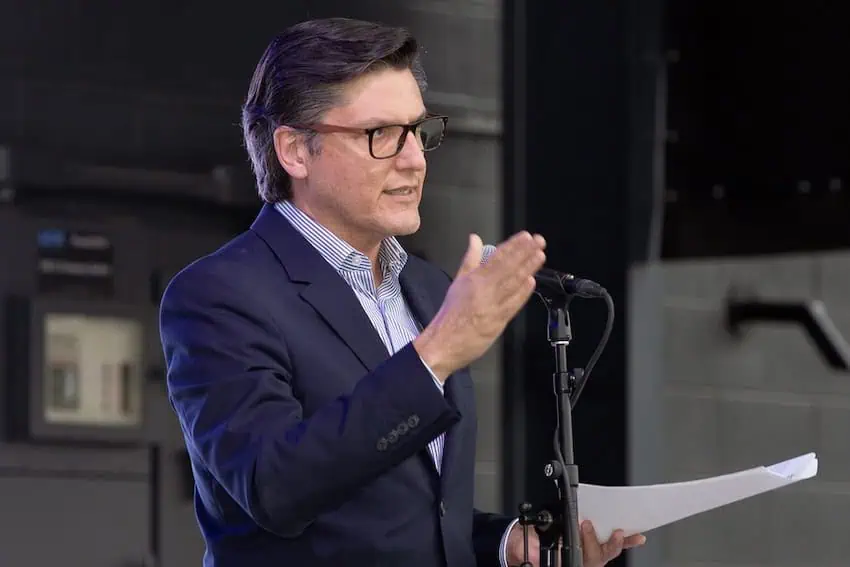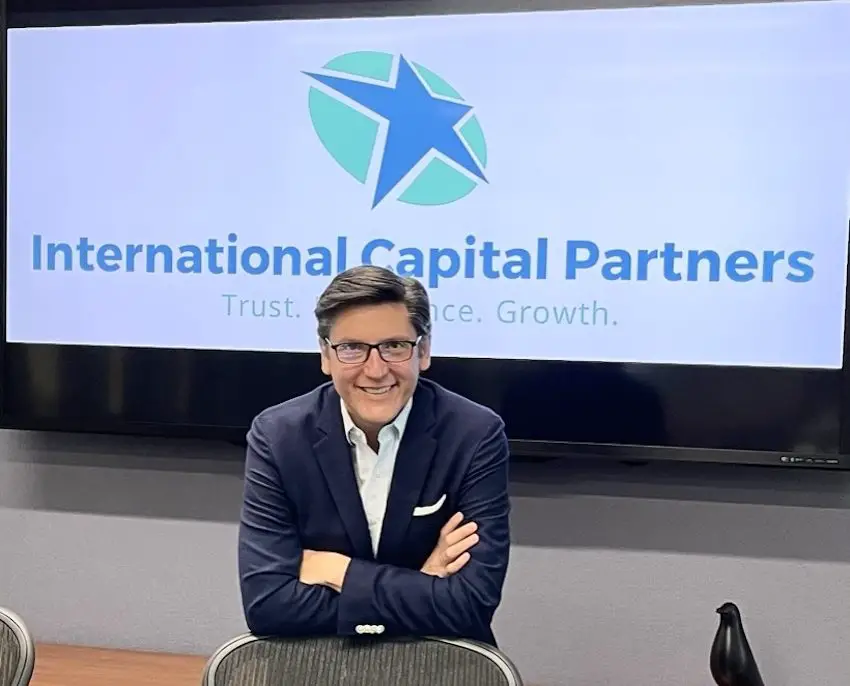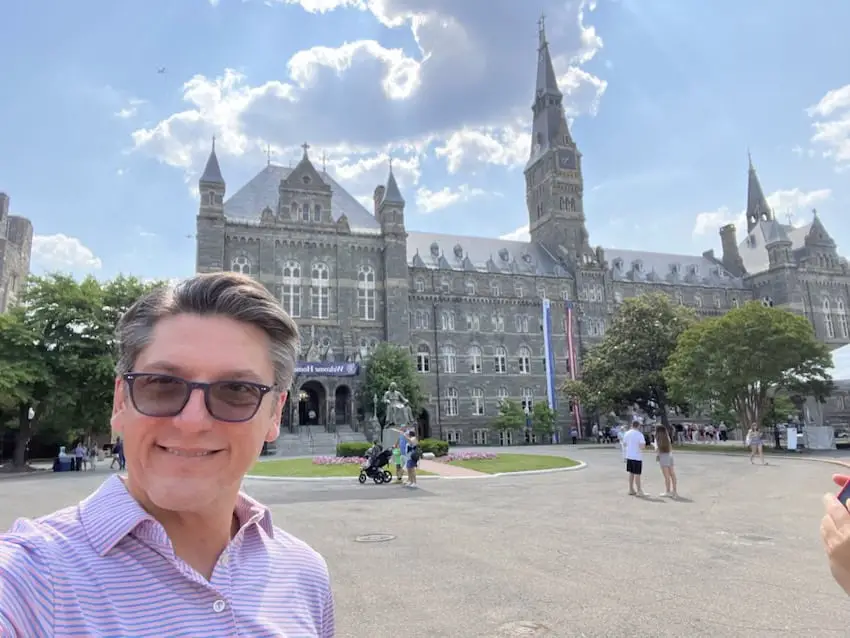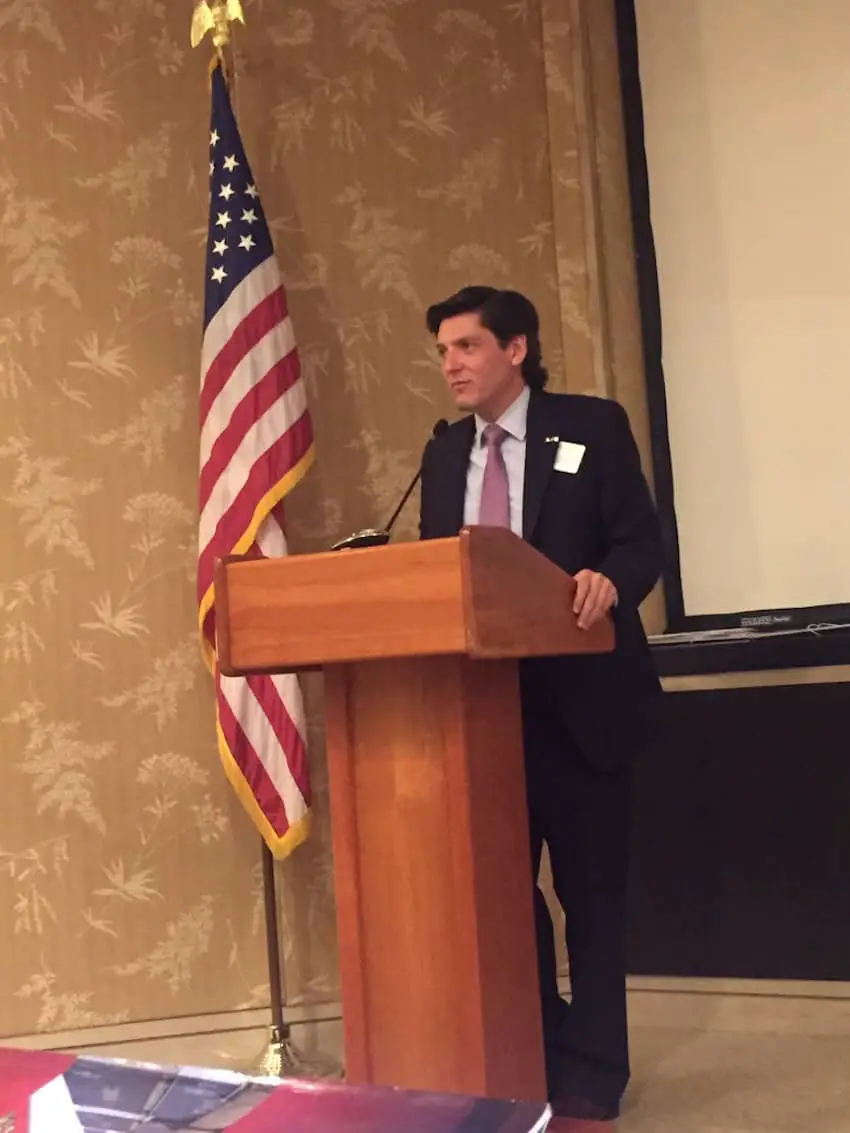My American Dream is in Mexico: Agustín Barrios Gómez

In our series “My American Dream is in Mexico”, we delve into the rising trend of individuals born to Mexican parents but raised abroad who are now choosing to build their lives and pursue their dreams in Mexico. Each story explores their motivations, the challenges of navigating dual identities, and the connections they’re rediscovering in the country their parents left in search of new opportunities.
Today, we spotlight Agustín Barrios Gómez, a businessman, analyst, and speaker with a global upbringing. The son of a diplomat, he spent his formative years in Canada, the U.S., and Switzerland before a prolific career in both the private and public sectors. He shares insights into his privileged, international background, the milestones of his impressive career, and why he ultimately chose to establish his roots in Mexico despite abundant opportunities elsewhere.

Age: 53
Location: Mexico City
Occupation: CEO of International Capital Partners
Can you share a bit about your childhood and what brought you to live in Canada?
“My father was a prominent figure in television and later transitioned into diplomacy. When I was six, he was appointed as Mexico’s Ambassador to Canada, so our family moved there. We spent six years in Canada before President de la Madrid named him Ambassador to Switzerland, where we lived for another four years. Later, my father became Consul General to New York City, which brought me to the United States for six more years.”
How did growing up in Canada, the U.S. and Switzerland shape your sense of identity as a Mexican?
“Growing up in Canada, the U.S., and Switzerland gave me a global perspective. I speak four languages, have lived in five countries, and can adapt to life almost anywhere. These experiences shaped me into a global citizen with friends across the world and the ability to move between different cultures. Many people who’ve had similar upbringings often embrace a global identity, living in cities like London, New York, or Rome, or working for organizations like the World Bank or transnational corporations.
But I made a conscious and specific decision to define myself as Mexican. Unlike immigrants, who often leave their home country out of necessity, I’ve always had choices. As someone with options, I could decide how I wanted to live and who I wanted to be. I chose Mexico because it’s a nation with so much to offer, and I’ve always felt deeply connected to it. Mexico City, in particular, is my favorite city in the world, and deciding to plant roots here was a deliberate choice to affirm my identity as Mexican.


That said, my experience of Mexico is very different from what many people imagine. My Mexico is a country of hardworking, talented, and creative people. I don’t see myself in the narratives of violence or victimhood that often come up when talking about Mexico. While I understand those aspects exist, they are not part of the Mexico I know or live in. Instead, my Mexico is about its incredible potential and strength, and I feel fortunate to have chosen to be part of it.”
What inspired you to not only return to Mexico but also dedicate yourself to building a life and career here?
“Mexico was the place where I felt I could make the biggest difference. The first question I asked myself was, “Where can I have the greatest impact?” And the answer was Mexico. Then came the next question: “Is Mexico a country worthwhile to dedicate your life to?” For me, the answer was yes.
Mexico is a unique country with a confluence of factors that give it a significant role on the world stage. With 120 million people and a strategic position globally, it’s a middle-income power with real potential for influence — whether through soft power or other means. Mexico matters.
However, when I returned, I realized I needed to create a Mexican persona because, despite my roots, I’d never truly lived here. I spoke Spanish with an accent, and there was a process of truly becoming part of the culture. I gave myself time in those early years to refine my Spanish, immerse myself in the culture, and develop into someone who could genuinely contribute to Mexico as a public figure. By the time I felt comfortable and fully integrated, I was ready to step into the opportunities that came my way.”
You mentioned wanting to make a difference in Mexico and fully integrating into the culture. How did that vision translate into your professional journey, and what are you focused on now?
“After 16 years abroad, I returned to Mexico City as a 22-year-old to join Procter & Gamble. Shortly after, my father had a stroke so I took over the family finances since I’m an only child. This led to entrepreneurial ventures like launching a tequila brand and running a nightclub and restaurant.
In my early 30s, I transitioned into public life, hosting a radio talk show and later running for Mayor of Miguel Hidalgo [a district of Mexico City]. Although I narrowly lost, the campaign propelled me into public policy.
Eventually, I shifted to private equity, founding a real estate investment fund in the U.S., where I’ve been navigating opportunities between Mexico City and Houston ever since. I’ve been doing this for the past eight years.”
You’re often seen as a bridge between different cultural and economic worlds. How has your journey influenced your professional vision, especially regarding Mexican-American relations?
“I’ve always believed that American prosperity and national security are closely tied to a stable and cooperative Mexico. What’s good for Mexico is inherently good for the U.S., especially when it comes to stability and cooperation. For example, if Mexico were to turn away from the U.S. or align with adversaries, it could create a significant crisis, especially given the size and strategic position of Mexico’s economy. Mexico’s economy is four times the size of Iran’s — imagine the potential chaos if it were to go rogue.
In this context, I see supporting Mexico’s interests as directly supporting U.S. interests. And conversely, what benefits the U.S. also benefits Mexico. These two countries are inseparable — there’s no daylight between their interests. You can’t truly understand U.S. history without considering Mexico, and you can’t understand Mexico’s history without the United States. The cultural, political, and economic ties are so deeply intertwined that they form a unique partnership, one that’s essential to the success of both nations.


Also, 10% of the U.S. population is Mexican-American, and this isn’t just about immigration — it’s a historic reality. Out of the 37 million Mexicans and Mexican-Americans in the U.S., only 6 million are undocumented, and the vast majority are legal citizens. It benefits the U.S. to understand its relationship with this large, integral community. Vilifying 10% of your population doesn’t make sense, especially when that community contributes so much. The U.S. and Mexico share deep, historic ties, and recognizing these connections is crucial for both nations’ futures.”
What are your thoughts on the topic of gentrification in Mexico City?
“Gentrification in Roma and Condesa began long before Americans arrived. Mexicans have always had the ability to gentrify their own neighborhoods. While the influx of newcomers, including Americans, may drive up prices in specific areas, it’s also contributing to the city’s growing diversity, which I believe is positive. Mexico City is home to over 22 million people and has many neighborhoods that could benefit from revitalization. Areas like Santa María la Ribera or Doctores are ripe for development. The idea of xenophobia surrounding this issue is, in my view, un-Mexican — Mexico has always been a welcoming country. There are plenty of other areas in the city that can accommodate new residents and offer affordable housing. The focus should be on the city’s overall growth, not on blaming foreigners for rising rents.”
As a child of multiple cultures, how would you define the Mexican Dream?
“The Mexican Dream is rooted in diversity, personal freedom, and strong family and friendship bonds. Unlike in the U.S., where families often live separately, here in Mexico, extended families live close together, supporting each other. Hospitality is key to the Mexican Dream, with the idea that if more people arrive at your home than expected, you simply add more water to the soup to accommodate everyone. It’s about generosity, respect for different cultures, and maintaining close-knit relationships.”
What advice would you give to Mexicans who may feel the pull to succeed abroad rather than within Mexico?
“Mexico offers many opportunities, and if you’re not finding what you’re looking for in one city, consider exploring other regions like Monterrey, Oaxaca, or Mazatlan, which are experiencing significant growth. Tijuana, once considered a rough place, is now a booming foodie destination. If you still feel the need to succeed abroad, remember that personal freedom is key. Mexicans make excellent immigrants — hardworking and law-abiding — but often don’t believe in themselves enough. It’s important to take control of your life and recognize that you belong wherever you go. Only you can make that decision.”
Are you a U.S.-born or raised child of Mexican immigrants currently living in Mexico? Perhaps your Mexican parents immigrated to another country, and you’ve chosen to return to Mexico? If so, I’d love to hear your story for this series! Please leave your email in the comments, and I’ll reach out.
Rocio is based in Mexico City and is the creator of CDMX iykyk, a newsletter designed to keep expats, digital nomads and the Mexican diaspora in the loop. The biweekly dispatches feature top news, cultural highlights, upcoming CDMX events & local recommendations. For your dose of must-know news about Mexico, subscribe here.
Source: Mexico News Daily

